Career-Connected Learning: Preparing Students for a Dynamic Future
Key Points
-
Connecting young people with career awareness needs to start at an early age to provide them with the necessary landscape view of opportunity and skills.
-
Whether young people engage client focused opportunities, internships, or endure academically challenging coursework, career connected learning is an environment to cultivate a sense of self-awareness, determination, and direction, essential for their success in both education and life.
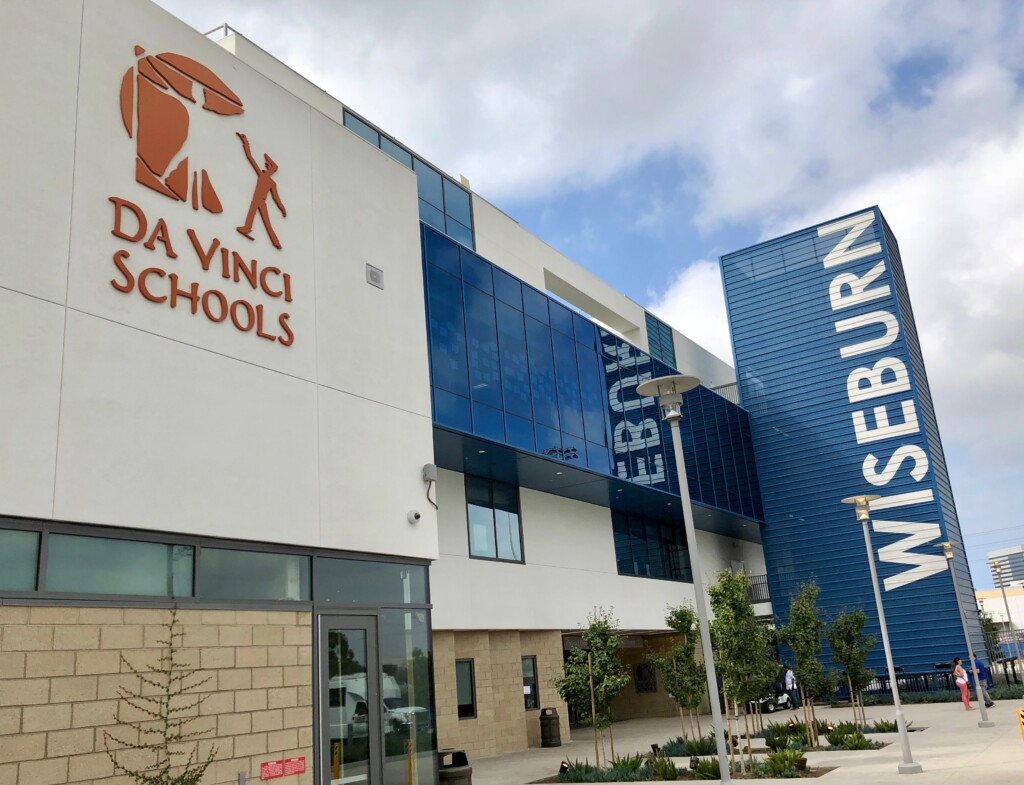
The world of work is changing more rapidly than ever. To help students develop new priority skills and a sense of purpose, educators nationwide are facilitating career exploration and work-based learning experiences. An evolving strategy known as career-connected learning (CCL) helps students forge real-world connections, gain career exposure, and build vital skills they’ll need for a successful future.
Da Vinci Schools and Transcend recently hosted a gathering on career-connected learning. These six elements were highlighted throughout the gathering.
Career Connected Learning Starts with Exploration and Reflection
Cajon Valley USD learners engage in 54 immersive World of Work units of study K-8. After engaging in projects and meeting professionals, learners reflect on their strengths, interests and values and how they line up with the possible future (see feature).
ASA’s EvolveMe and FutureScape provide tools for interest inventories and career exploration for middle school students that are directly connected to passions and interests. With pathways ranging from Health Science to Hospitality and Tourism to Information Technology, students catch a glimpse of career options, pay range, and adjacent career opportunities.
Career Connected Learning Benefits from Community Agreements
Career learning flourishes when educational institutions forge strong partnerships with local businesses, nonprofits, and civic organizations. Community partners collaborate with school organizations to create shared agreements on ways to support present learning and future workforce needs. The common commitments allow all stakeholders to take a vested interest in education. Strong CCL programs capitalize on the joint commitment to bring real-world experiences to young people through internships, custom courses, and work-based learning solutions.
For the past ten years, the Kauffman Foundation spearheaded the development of Real World Learning in metro Kansas City which fosters regional collaboration to support experiential learning experiences and employer engagement. Three dozen school systems from both Kansas and Missouri benefit from community agreements that prioritize client projects, internships, entrepreneurial experiences, college credit and industry credentials. More than 20,000 high school students in the metro area earned one of these ‘market value assets’ last year.
Recently, Aldine ISD in Houston, Texas partnered with Memorial Hermann Health System to redesign a local high school with funding from Bloomberg Philanthropies to expose and prepare students for opportunities in the medical field. The collaboration not only equips young people with future-forward skills but also places them directly in a pipeline to work in a high-demand industry, addressing the medical desert in which the school district is situated.
Career Connected Learning is Integrated into Pathways
Career-connected learning is most effective when seamlessly woven into the fabric of education through innovative learning models and pathways where career awareness and experiential learning are prioritized alongside academics. Big Picture Learning and High Tech High incorporate internships and project-based approaches to emphasize personalized learning, where students tackle real-world problems in close collaboration with industry mentors.
Pathway schools are another option to embed career learning through a thematic approach. Campuses like Energy Institute High in Houston introduce students to four years of engineering and energy through projects and client-connected experiences.
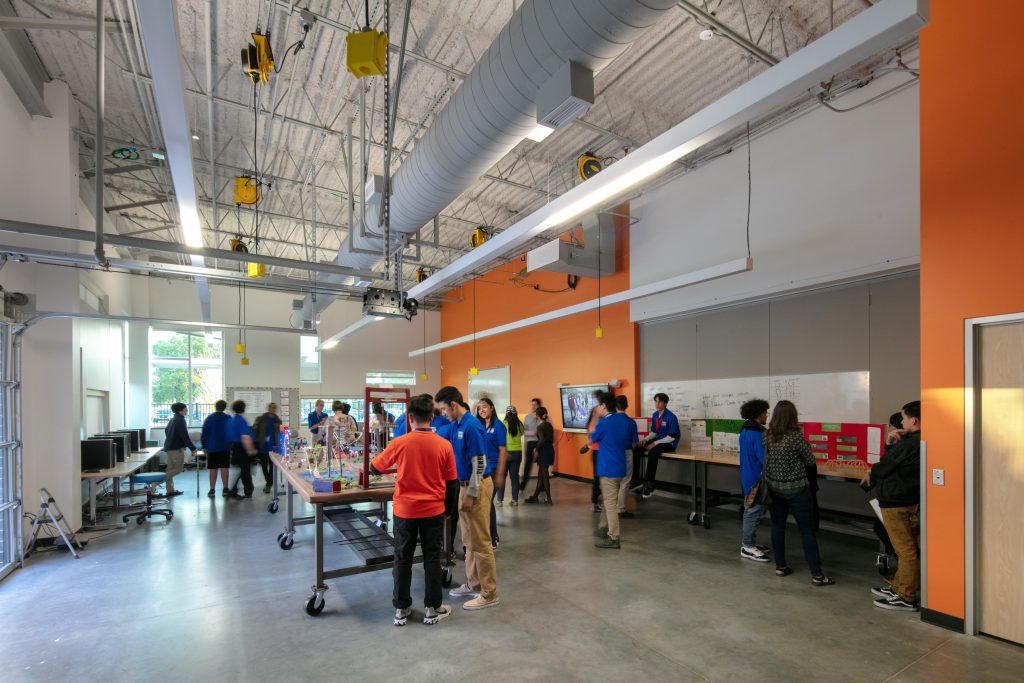
Del Lago Academy in Escondido, California prepares students for opportunities in healthcare and biotech and partners with local medical organizations to extend learning beyond the classroom.
Learning networks such as NAF, Linked Learning, ConnectED, and Ford NGL integrate rigorous academics with technical skills and workplace experiences aligned with high-demand fields based on student interests and global needs. The offerings in these organizations expose students to a variety of options before committing to a pathway of their choosing.
Da Vinci Schools in Los Angeles include three career pathway schools that offer specialized courses and unique opportunities for students to work alongside professionals and problem-solve through the context of relevant, industry-aligned projects and internships.
- Da Vinci Communications students have four career pathways to choose from: Computer Science (robotics, web design, app development), Marketing, Multimedia Journalism, and Media Production.
- Da Vinci Design offers three career pathways: Architecture, Graphic Design and Entrepreneurship
- Da Vinci Science students have three career pathways to choose from: Mechanical Engineering, Civil Engineering, and Biomedical Engineering. .
Starting in New York City in 2011, P-TECH schools combined an IT-focused early college pathway with work experiences at IBM. There are now more than 300 P-TECH and in addition to computer science pathways include business, healthcare, and education. (See feature on St Vrain Valley P-TECH and P-TEACH).
The Power of Client Projects
Career-connected learning offers opportunities for students to engage in client projects contributing to an immersive educational experience where they can showcase skills to meet the needs of their stakeholders. Offering students the chance to work on real-world projects that address the changing needs of partners encourages teamwork, strengthens problem-solving abilities, and allows agility and empathy muscles to be exercised.
Strong examples of young people meeting the demands of a client’s expectations is paramount to courses in the CAPS Network where students tackle authentic projects in professional settings and receive feedback in real-time. Most of the 100+ affiliate sites offer professions-based learning experiences to high school juniors and seniors. A survey of some of the 40,000 CAPS grads showed that CAPS programs had a significant influence on professional growth.
The History Co:Lab partners schools with museums to ideate and create projects addressing the needs of museum patrons in core academic classes.
Students looking to sharpen their technical and global skills, appreciate healthy competition, and are open to the challenge of solving real-world issues can do so independently or on a team with projects from KnoPro from NAF (see feature).
The US Chamber of Commerce Foundation is recruiting intermediaries nationally to host Employer Provided Innovation Challenges (EPIC). The client projects will be hosted on Riipen and badged by Credly.
The Knowledge Society functions as a global incubator for young people (see podcast). The 10-month afterschool program exposes students to emerging technologies while training real-world skills. After a few months, these are some projects students have worked on:
AI is a New Partner in Career Connected Learning
The rise of AI brings new urgency to the need for more career-connected learning and AI-powered applications can extend access to and improve the quality of career-connected learning experiences.
Project Leo, developed by DaVinci Schools, is a gen AI app that uses self-identified passions, interests, and career possibilities to personalize student projects. Teachers embed specific expectations for projects while AI ensures outcomes are met by honoring students’ unique and varied pursuits. The agility and responsiveness of Project Leo allow for student-centered learning and real-world application.
Students can also explore various career paths using SchoolJoy which relies on AI to analyze student interests, skill sets, and local market data to suggest best-fit career paths. AI enables students to learn about career options beyond their neighborhood and can pivot based on student passions and curiosities.

Playlab is an AI sandbox that allows educators to build projects and chatbots that can bring career-connected learning to life.
Career Connected Learning Develops Agency, Identity and Purpose
Quality career learning equips learners with lifelong global and technical skills to navigate an evolving world. Immersing young people in environments that support risk, curiosity, and self-discovery encourages skill-building and interpersonal growth. Career learning supports students’ understanding of themselves, their strengths, and the ability to chart their course.
In his new book Education for the Age of AI, Charles Fadel refers to agency, identity, and purpose as the key drivers of education. He notes how career-connected learning catalyzes the drivers (see podcast).
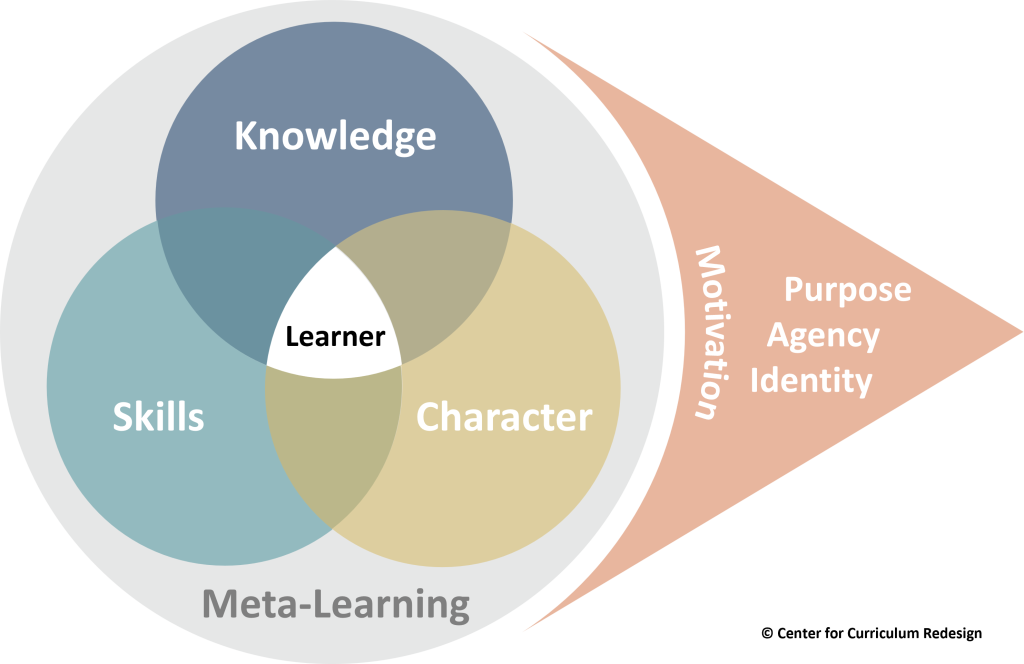
Experiential learning also provides young people with guidance on personal development, and decision-making and further empowers them to forge paths with confidence and purpose as mentioned in Jean Eddy’s new book Crisis-Proofing Today’s Learners. Whether young people engage in client-focused opportunities, internships, or endure academically challenging coursework, career-connected learning is an environment to cultivate a sense of self-awareness, determination, and direction, essential for their success in both education and life.
TruMotivate is a story-based assessment that reveals the motivation that helps learners take ownership of their value, engagements, and actions and take control of their career path and future.
By empowering students to proactively shape their destinies, career-connected learning opens doors for every student to explore, learn, and thrive in the evolving world of work and beyond. Let’s embrace and expand this framework to ensure this opportunity for all.
For more see

Tom Vander Ark


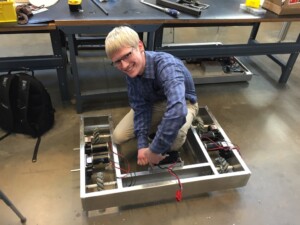
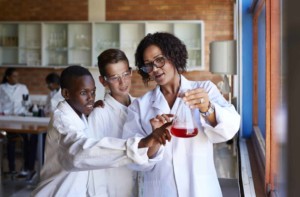
0 Comments
Leave a Comment
Your email address will not be published. All fields are required.